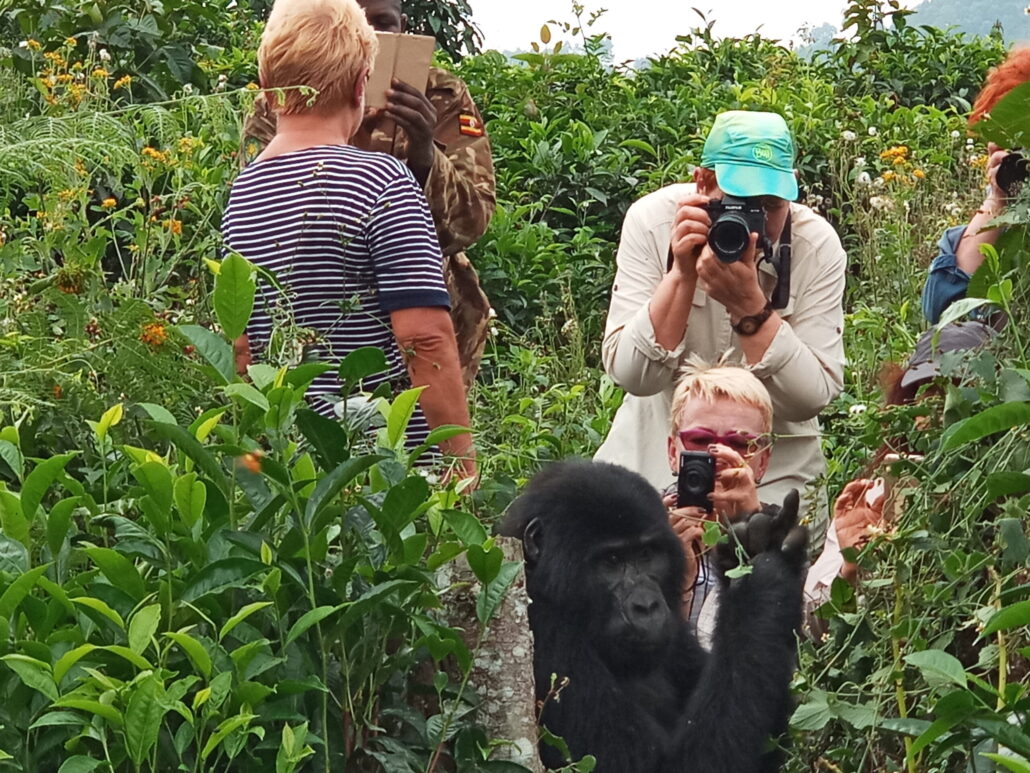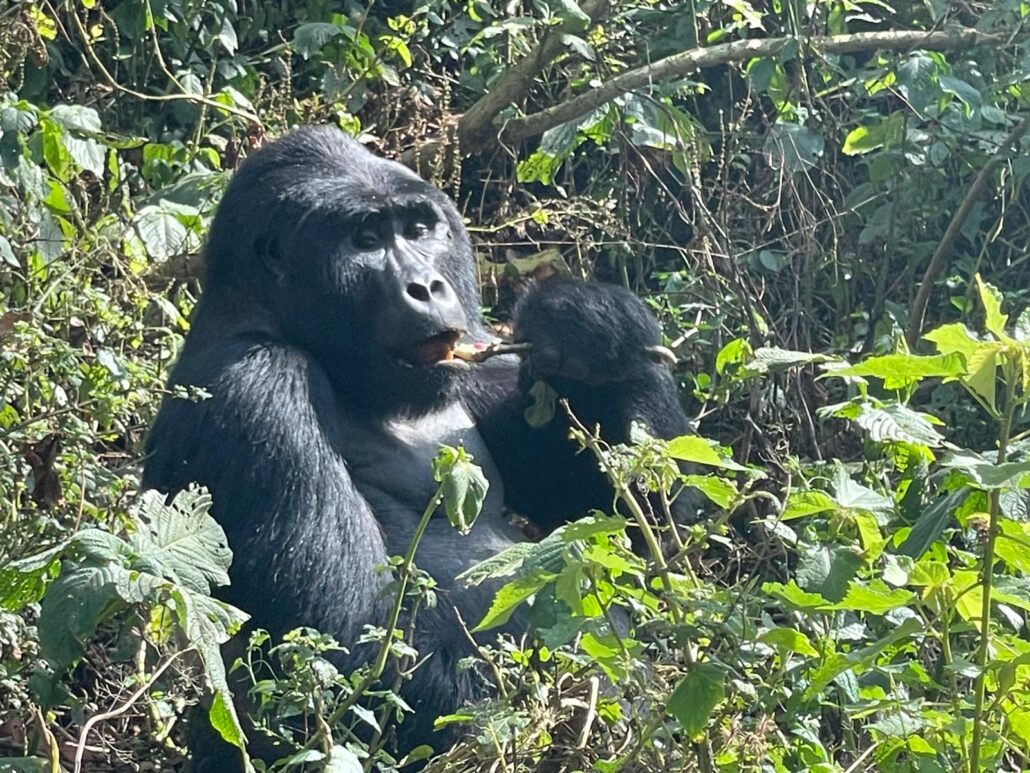Rwanda: A Traveler’s Guide (All You Need To Know Before You Go)
Rwanda, often referred to as the Land of a Thousand Hills, is a picturesque East African nation known for its stunning landscapes, unique wildlife, and resilient history. This small yet vibrant country has become a favorite destination for tourists seeking an authentic African experience. Here’s everything you need to know before planning your trip to Rwanda.
Location (Where Is Rwanda Located?)
Rwanda is located in the Great Lakes region of East Africa, bordered by Uganda to the north, Tanzania to the east, Burundi to the south, and the Democratic Republic of Congo (DRC) to the west. Its compact size makes it easy to navigate, with Kigali serving as the central hub for most travel routes.
How to Get to Rwanda:
- By Air: The primary gateway to Rwanda is Kigali International Airport (KGL), located just 10 km from Kigali city center. Major airlines like RwandAir, Qatar Airways, and KLM operate flights to Kigali from various international destinations.
- By Road: Rwanda is well-connected to neighboring countries, with border crossings at Gatuna (Uganda), Rusumo (Tanzania), and Akanyaru (Burundi). Buses from regional capitals such as Kampala, Nairobi, and Dar es Salaam are a common choice for budget travelers.
Once in Rwanda, a network of well-maintained roads and highways makes getting around relatively straightforward, whether you rent a car, use public transport, or hire a local guide.
What Is Famous About Rwanda?
Rwanda is globally recognized for its conservation efforts, especially in the protection of the endangered mountain gorillas. It is home to about one-third of the world’s remaining gorilla population, found in the lush Virunga Mountains. The country is also celebrated for its remarkable commitment to environmental sustainability, being one of the cleanest nations in Africa thanks to its plastic bag ban and monthly community cleanup days known as Umuganda.
Beyond its natural wonders, Rwanda’s culture is a highlight. Visitors can immerse themselves in traditional music, dance, and art, or explore the rich history of the Rwandan people through museums and cultural heritage centers. Rwanda also stands as a testament to resilience, with the Kigali Genocide Memorial offering a profound insight into the country’s tragic past and incredible recovery.
Is It Safe to Visit Rwanda?
Yes, Rwanda is one of the safest countries in Africa for tourists. Since the tragic events of the Rwanda1994 genocide, Rwanda has undergone remarkable transformation and is now a model of peace and stability in the region.
Security: Rwanda boasts a low crime rate, with the police force actively ensuring the safety of locals and visitors alike. Kigali, the capital, is particularly known for its cleanliness and safety, even at night.
Health & Vaccinations: While Rwanda is generally safe from health risks, it’s advisable to take precautions against malaria and get vaccinations for yellow fever and typhoid before your visit. Drinking bottled or boiled water is recommended.
Cultural Etiquette: The Rwandan people are warm and hospitable. To ensure a pleasant experience, familiarize yourself with local customs, such as dressing modestly and seeking permission before taking photos of people.

Why Tour Rwanda?
Rwanda is a small but diverse country, offering a variety of experiences that cater to all kinds of travelers. Wildlife enthusiasts are drawn to its world-class gorilla trekking in Volcanoes National Park, while adventure seekers can hike, bike, or kayak amidst the stunning landscapes. Its welcoming people, safe environment, and efficient infrastructure make it an easy and rewarding destination to explore.
Moreover, Rwanda’s emphasis on sustainability ensures that tourism directly contributes to local communities and conservation efforts. Whether you’re looking to unwind by the shores of Lake Kivu or embark on a cultural journey, Rwanda provides a unique and enriching experience.
When Is the Best Time to Visit Rwanda?
Rwanda’s climate is characterized by two rainy seasons and two dry seasons, which significantly influence the best time to visit:
- Dry Seasons (June to September, December to February): These months are ideal for outdoor activities such as gorilla trekking, game drives, and hiking. The dry weather makes trails less slippery and wildlife more visible.
- Rainy Seasons (March to May, October to November): While these months bring lush greenery, some activities, like trekking, can be challenging. However, birdwatchers may find this period rewarding as migratory species flock to Rwanda.
Best Places to Visit in Rwanda
Volcanoes National Park
Famous for its mountain gorillas, this park is the crown jewel of Rwanda’s tourism. Trekking through the misty rain forest to encounter gorillas in their natural habitat is a once-in-a-lifetime experience.
Nyungwe Forest National Park
This dense rain-forest is home to an array of primates, including chimpanzees and colobus monkeys. It also offers East Africa’s only canopy walk, a thrilling experience for adventure enthusiasts.
Lake Kivu
A serene escape, Lake Kivu is perfect for relaxation and water activities like kayaking and boat rides. Towns like Gisenyi and Kibuye provide excellent lakeside retreats.
Akagera National Park
Rwanda’s savannah park, Akagera, offers classic safari experiences with opportunities to spot the Big Five (lion, elephant, buffalo, leopard, and rhino). A boat ride on Lake Ihema is an added bonus.
Kigali Genocide Memorial
A visit to Rwanda is incomplete without learning about its history. The Kigali Genocide Memorial Site serves as a poignant reminder of the country’s past while highlighting its incredible journey of recovery and unity.
Musanze Caves
These ancient lava tunnels near Volcanoes National Park provide a glimpse into Rwanda’s geological history and are a fascinating stop for adventurous travelers.
Gishwati-Mukura National Park
This relatively new park is a hidden gem for nature lovers, offering forest walks and opportunities to spot primates and rare bird species.
Tips for Travelers
- Currency: The local currency is the Rwandan Franc (RWF), but US dollars are widely accepted.
- Language: Kinyarwanda is the national language, but English and French are also commonly spoken.
- Visa: Most travelers can obtain a visa on arrival, but check the requirements based on your nationality.
Rwanda’s charm lies in its ability to offer diverse experiences, from wildlife encounters to cultural immersion. Whether you’re an adventure seeker or someone looking for serenity, Rwanda promises an unforgettable journey.
Getting a Rwanda Visa & Rwanda Visa Information
Visa Requirements for Rwanda
Rwanda offers several visa options for travelers, depending on nationality and purpose of visit. Here are some key details about obtaining a visa for Rwanda:
Tourist Visa
Rwanda offers a tourist visa for individuals visiting the country for leisure, business, or other short-term purposes. The tourist visa is valid for up to 30 days and is available for citizens of most countries.
East African Tourist Visa (EATV)
Citizens of eligible countries can apply for the East African Tourist Visa, which allows travel to Rwanda, Uganda, and Kenya on a single visa for up to 90 days. This option is perfect for travelers planning to visit multiple East African nations during their stay.
Visa on Arrival
Rwanda allows travelers from many countries to obtain a visa on arrival at the Kigali International Airport or any other border entry point. This visa is typically valid for 30 days and can be extended for an additional period if necessary.
E-Visa
Rwanda has an online visa application system, allowing travelers to apply for a visa electronically. The e-visa system is convenient for visitors from eligible countries, as it enables them to apply and pay for their visa in advance, saving time on arrival.
Business and Conference Visa
For travelers visiting Rwanda for business, meetings, or conferences, a business visa can be obtained. This visa is typically issued for short-term stays and may require an invitation letter from a Rwandan-based company or organization.
Transit Visa
A transit visa is required for travelers passing through Rwanda en route to another destination. This visa is typically valid for up to 72 hours, allowing travelers to stay in Rwanda briefly.
Exemptions
Citizens from certain countries are exempt from obtaining a visa for stays of up to 90 days. These include citizens from African Union member states, among others.
How to Apply for a Rwanda Visa
Online Application (E-Visa):
Visit the Rwanda Directorate General of Immigration and Emigration’s official website.
Select the type of visa you require (tourist, business, transit, etc.).
Fill out the online visa application form and upload required documents such as a passport copy, passport-sized photo, and travel itinerary.
Pay the visa fee using available online payment options.
Once processed, the e-visa will be sent to your email, which you can print and present upon arrival.
Visa on Arrival:
If you are eligible for a visa on arrival, you can simply proceed to the visa desk at Kigali International Airport or at any land border crossing point. Be sure to have the necessary documents, including a valid passport, onward flight ticket, and proof of accommodation.
Embassy or Consulate Application:
Travelers from countries that require pre-arranged visas can apply at Rwandan embassies or consulates. You’ll need to provide supporting documents such as a completed visa application form, passport-sized photos, a valid passport, proof of sufficient funds, and an invitation letter (if applicable).
Visa Fees
Visa fees for Rwanda vary depending on the type of visa being applied for:
Tourist Visa (Single Entry): Around $30 USD.
East African Tourist Visa: Around $100 USD for multi-country travel (Kenya, Uganda, and Rwanda).
Business Visa: Typically around $50 USD.
Transit Visa: Around $30 USD for stays of up to 72 hours.
E-Visa Application Fee: Fees vary depending on the type of visa.
Make sure to check the official Rwanda Immigration website for the most current visa fees, as they can change from time to time.
Processing Time
Visa processing times depend on the type of visa applied for. E-visa applications typically take 2-3 business days to process, while visa-on-arrival and embassy applications may take longer, depending on the specific requirements and workload of the consulate.
Additional Information
Passport Validity: Your passport should be valid for at least 6 months from the date of arrival in Rwanda.
Health Requirements: Travelers are advised to get vaccinations before entering Rwanda, especially for yellow fever. Proof of yellow fever vaccination may be required. Besides, travelers should check current health entry restrictions, including Vaccination, & testing requirements, before planning their trip.
By following the visa application process and staying informed of any requirements, you can ensure a smooth and hassle-free visit to Rwanda.
